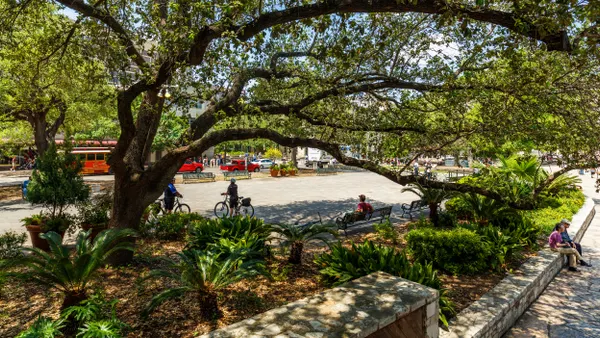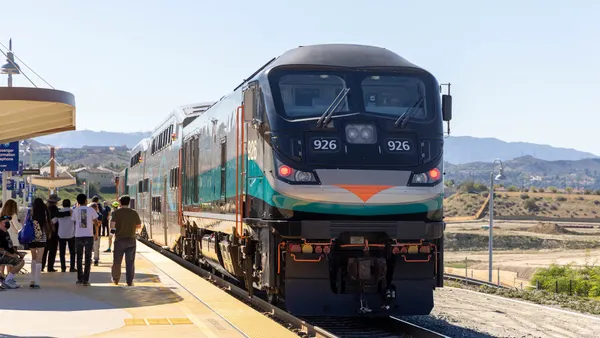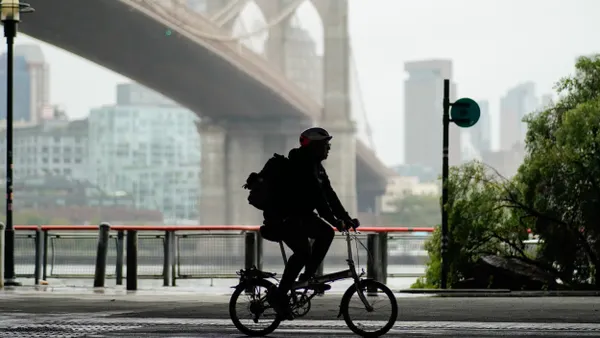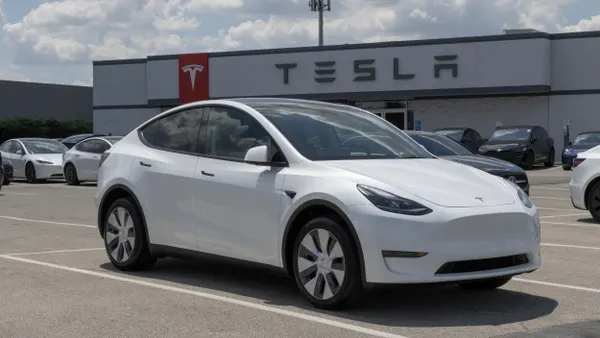Dive Brief:
- Uber announced it began collecting data on Washington, DC streets on Friday, a prelude to the company testing and running autonomous vehicles (AVs) in the city.
- The company will run a fleet of self-driving cars in manual driving mode, with a driver keeping control of the vehicle at all times and another employee sitting in the back. The cars will only test during daylight hours, according to the District of Columbia Department of Transportation (DDOT).
- The manual data collected during the drives will help support Uber’s self-driving software, especially by observing and analyzing layouts and traffic situations that may vary across different cities. Uber has not announced when it might run fully autonomous vehicles in DC.
Dive Insight:
Uber has slowly ramped up its AV operations in the past year after testing was paused in the aftermath of a fatal crash involving a pedestrian in March 2018. (A federal investigation concluded in November 2019 laid blame on Uber’s "inadequate safety culture" and a distracted safety driver.) DC will be the fifth city where Uber is testing AV operations; it is also collecting data in Dallas, Pittsburgh, San Francisco and Toronto.
Given the scrutiny following the 2018 crash, Uber promised in a blog post that it is "working closely with local stakeholders and city officials" on safety and is committed to a "phased approach to develop and deploy our self-driving vehicles, taking the necessary steps to operate safely in every city."
Speaking to The Washington Post, Uber Advanced Technologies Group head Eric Meyhofer said that testing in the nation’s capital can also give policymakers a front-row seat to the operations. "It’s our responsibility to inform and educate folks about how this goes and what this is and what are we doing,” Meyhofer said at the Washington Auto Show, the Post reported.
The data collection will help Uber refine its software and testing of AVs ahead of commercial operations. Companies have tried to diversify their testing sites to capture a range of street conditions, weather and driving habits, like Washington's intense rush hours and high numbers of pedestrians and bikers.
In addition to Uber, Ford-backed Argo AI has also been mapping parts of the city ahead of a planned commercial launch. Given the city’s interest in advanced transportation and new mobility, it is likely to support continued testing with adequate safety agreements.










